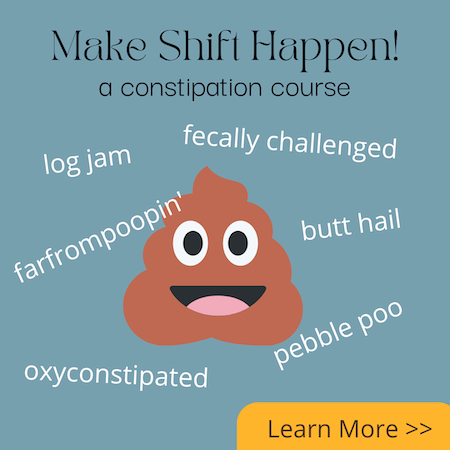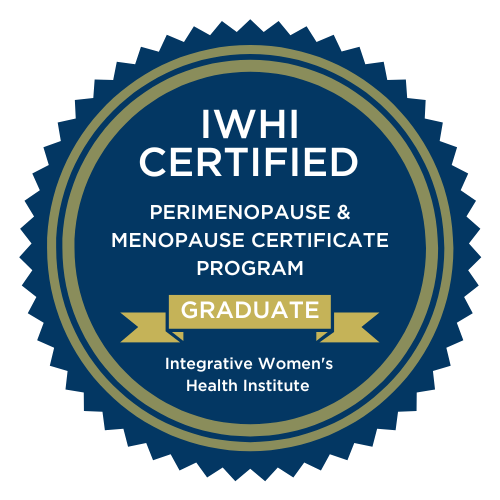As an abdominal massage therapist I work in partnership with Naturopathic and Functional Medicine Physicians who are helping people recover from small intestinal bacterial overgrowth (SIBO) using abdominal massage and Visceral Manipulation™. Physicians typically address SIBO through a variety of herbal, antibiotic, and nutritional protocols. Honestly, it’s kind of a mysterious condition and the researchers in the field are learning more all the time so I’ve seen the protocols change over the years.
My job as a practitioner trained in abdominal massage therapies is to help improve gut motility, reduce restrictions, and improve intestinal sphincter function through manual therapy. Slow motility can lead to SIBO, a difficult recovery, and SIBO relapses. It seems obvious that slow motility would cause constipation, but it’s important to note that slow motility in the small intestine can also cause loose stools. For instance, if the small intestine’s motility is slow, bacteria build resulting in inflammation, irritation to the nerves, and possible fluid build-up. By the time everything gets to the large intestine there is too much fluid for the body to reabsorb and diarrhea is the result.
I sometimes find dysfunction with the ileocecal valve (IC Valve) with clients who have SIBO. The IC Valve connects the small intestine to the Cecum (the first part of the large intestine). Peristalsis of the small and large intestine should keep things flowing in the right direction. The IC Valve also plays a role in keeping contents from the cecum back flowing into the small intestine. Dysfunction in the IC valve can lead to bacteria migrating from the large intestine to the small intestine where it shouldn’t be. There are specific Visceral Manipulation™ techniques that improve the ileocecal valve function. These manual therapy techniques may include working with the ileocecal valve, cecum, and/or surrounding structures.
Practitioners who are trained in Visceral Manipulation™ may also work to improve the motility of the small and large intestine as well as the liver or stomach. Low stomach acid is another cause of SIBO. Stomach acid is the body’s first line of defense, it’s part of our immune response, it kills bacteria in our food before it gets to the small intestine. If the stomach acid is low, harmful bacteria get to the small intestine. So think twice before popping the antacids. We need acid! I wrote about how low stomach acid can actually CAUSE heartburn here.
A Visceral Manipulation™ practitioner doesn’t follow one set protocol when working with someone with SIBO (or anyone else). The body guides us. That’s why we start the session with a “listening” with our hands. Listening is a way the body guides us to lesions or restrictions in the body. Restrictions may be adhesions, but not always. I wrote about my approach to working with abdominal adhesions here.

No one area of the body works in isolation. Working with the belly can be like working with a ball of string. You pull on one area and you feel it somewhere else. The intestines can definitely work in this way. There may be a dysfunction at the upper sphincters and once they’re corrected, the lower sphincters also correct. Or, if you improve the motility of one organ, you improve the motility of the surrounding organs. They are all connected and snuggled up to each other. I’ve even had my students report relief of their back or neck pain after releasing tension in the belly using self-abdominal massage. In the Free The Belly course, I teach students how to release tension in their belly using listening hands while doing abdominal massage. The course is designed for abdominal restrictions and scars but can also be applied when no scar is present and can be helpful as abdominal massage for SIBO.
In the Make Shift Happen course you will learn specific self abdominal massage techniques for improving large and small intestine motility as well as herbal and dietary recommendations for better bowel movements.
Recommended reading:
Chew Challenge https://alignmentmonkey.nurturance.net/2017/chew-challenge/
Digestive Tips Part 1: https://alignmentmonkey.nurturance.net/2011/digestive-health-part-1/
Digestive Tips Part 2: https://alignmentmonkey.nurturance.net/2012/digestive-health-part-2-alignment-and-digestion/
Constipation: https://alignmentmonkey.nurturance.net/2014/constipation-aka-log-jam/
Adhesions: https://alignmentmonkey.nurturance.net/2016/abdominal-adhesions/
SIBO Info: https://www.siboinfo.com/
Sucking your belly in https://alignmentmonkey.nurturance.net/2015/where-organs-go-when-sucking-in/
Dr. Mariotti’s lecture (video) Neuorplasticity, the Gut, and the Role of Visceral Manipulation in the Osteopathic Practice
June, 6th 2019 Chris Kresser talks with Dr. Mark Pimentel, an expert in the microbiome, about SIBO and its links to IBS, food poisoning, and autoimmunity.
To find a practitioner trained in Visceral Manipulation™ visit the Barral Institute’s website.










Could you share your self-care massage instructions for those of us who cannot come see you in person? Thank you!!! I have SIBO, and also a large mesenteric cyst that grew off of my pancreas that always feels “in the way”, but cannot be removed. Perhaps abdominal massage would help with digestion! Thank you again!
I am a Barral Techinques Certified Visceral Manipulation Practitioner, thanks for a wonderful article and education on SIBO and for the referral from our Barral Institute Website. Keep up the great work!
Hi Linda, I’m not sure the self-massage would be appropriate for you. I recommend seeing a practitioner in your area. They can do a thorough intake and determine what the best options are for you. If a Visceral Manipulation™ practitioner is not in your area, look for an osteopath who does manual therapy.
I have major bloating issues with pain in upper abdomen.
I have taken Xiflaxan which. gave me bad cramps. I have taken famotidine for several years. I take MiraLax daily which gives
me healthy bowel movements (Dr. recommended this regimen).
I am on a low FODMAP diet for two weeks.
Is there a belly massage I can do myself? My Kaiser insurance
does not cover massage therapy. I am going to try acupuncture
for this issue and back soreness due to lumbar compression
fractures.
Hi Susan, Typically, yes, abdominal therapy can help with bloating. It is impossible to say which approach would be best for you without a thorough intake and evaluation. In general, if someone is looking for self-abdominal therapy for bloating from SIBO, I direct them to my Free The Belly online course if they aren’t able to learn from me in person. https://courses.nurturance.net/abdominal-adhesions/
You may also want to check to see if your insurance will pay for you to see an osteopathic physician who is trained in manual therapy. You have to ask if they actually do manual therapy before making the appointment since only about 10% of osteopaths in the US do manual therapy.